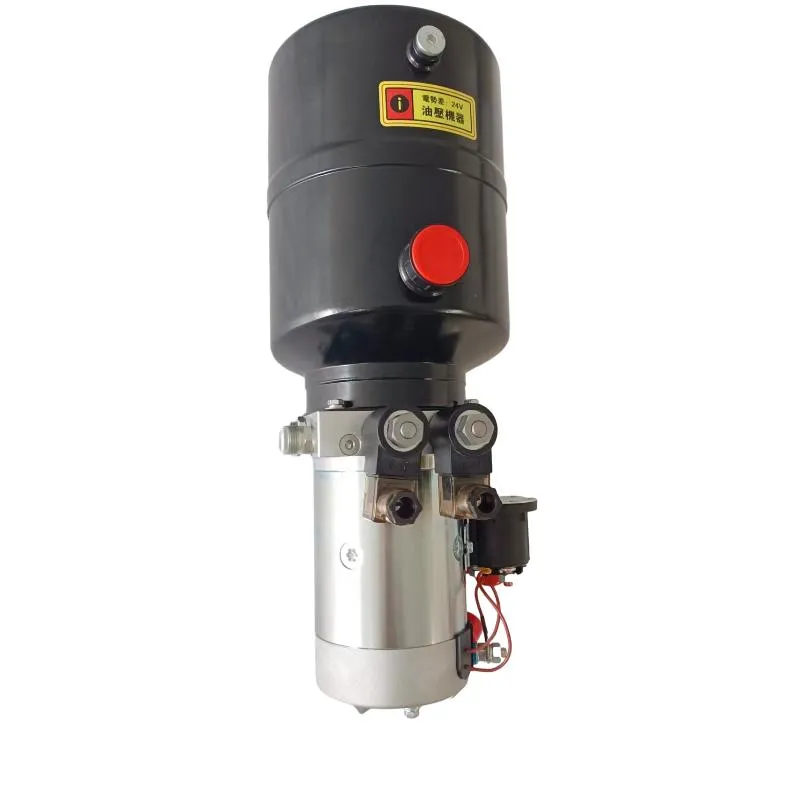Aug . 17, 2024 01:02 Back to list
Hydraulic Cylinder Breather Plug Products for Improved Performance and Efficiency
Understanding Hydraulic Cylinder Breather Plugs Essential Components for Optimal Performance
Hydraulic systems are pivotal in various industrial applications, from manufacturing to construction. At the heart of these systems lies the hydraulic cylinder, a critical component responsible for converting hydraulic energy into mechanical energy. To ensure the smooth operation of hydraulic cylinders, one often overlooked yet essential component is the hydraulic cylinder breather plug. This article delves into what breather plugs are, their significance, and factors to consider when selecting one for your hydraulic system.
What is a Hydraulic Cylinder Breather Plug?
A hydraulic cylinder breather plug is a device that allows air to flow into and out of the hydraulic cylinder while preventing contamination by dirt, dust, and moisture. It typically features a porous membrane or a filter that permits the equalization of pressure within the cylinder as the hydraulic fluid expands and contracts during operation. This function is crucial because hydraulic fluid changes with temperature, leading to varying pressures that need to be accommodated without compromising the integrity of the hydraulic system.
Importance of Breather Plugs
1. Pressure Equalization During the operation of hydraulic systems, temperature fluctuations cause the hydraulic fluid to expand and contract. Breather plugs facilitate the movement of air, which helps to equalize pressure within the cylinder. This function prevents unnecessary strain or damage to the seals and other components of the cylinder.
2. Contamination Prevention The breather plug acts as a first line of defense against contaminants. By filtering the air entering the hydraulic system, it prevents debris, dust, and moisture from getting into the hydraulic cylinder. Contaminants can drastically reduce the efficiency and lifespan of hydraulic components, so having a reliable breather plug is critical.
3. Temperature Management Proper ventilation aids in maintaining optimal operating temperatures within hydraulic systems. Without adequate airflow, heat can build up, potentially leading to overheating and damaging the hydraulic fluid and seals. A functional breather plug helps dissipate heat, ensuring efficient operation.
hydraulic cylinder breather plug products

Choosing the Right Breather Plug
When selecting a hydraulic cylinder breather plug, consider the following factors
1. Material Compatibility Ensure that the materials used in the breather plug are compatible with the hydraulic fluid. This compatibility helps prevent chemical reactions that could damage the components of the hydraulic system.
2. Filter Rating The filter rating of the breather plug is a crucial specification. It determines the size of particles that the filter can trap. A higher filter rating means better protection against contamination but may also limit airflow. Balance between adequate filtration and air circulation is essential.
3. Operating Conditions Assess the specific operating conditions of your hydraulic system. Factors such as temperature ranges, exposure to harsh environments, and the type of hydraulic fluid in use can influence the choice of breather plug. Some environments may require specialized breather plugs that provide enhanced protection against specific contaminants.
4. Installation and Maintenance Consider ease of installation and maintenance. Some breather plugs are designed to be easily replaceable, while others may require special tools or procedures for maintenance. Opting for a user-friendly option can save time and resources in the long run.
Conclusion
Hydraulic cylinder breather plugs are vital for ensuring the reliability and efficiency of hydraulic systems. They help maintain pressure balance, protect against contamination, and manage temperature. By choosing the right breather plug tailored to your specific hydraulic application, you can significantly enhance the performance and lifespan of your hydraulic equipment. Investing in quality breather plugs is worth the effort as they are small components that play a big role in the overall efficiency of hydraulic systems.
-
1.5 Ton Flipping Oil Cylinder 70/82-40-217-720-Hebei Shenghan Hydraulic Machinery|Precision Hydraulic Cylinder,Custom Hydraulic Solutions
NewsAug.29,2025
-
1.5 Ton Flipping Oil Cylinder 70/82-40-217-720 | Hebei Shenghan Hydraulic Machinery Co., Ltd.
NewsAug.29,2025
-
High-Precision [90/105-50-180-480] Industrial Component | Durable & Reliable
NewsAug.27,2025
-
High-Performance Set of 50/60-45-290 471 | Durable & Reliable Components
NewsAug.26,2025
-
Efficient Pallet Truck Power Units - Reliable Hydraulic Systems
NewsAug.25,2025
-
Premium Set of 50/60-45-290 471 Parts | High Performance
NewsAug.24,2025
